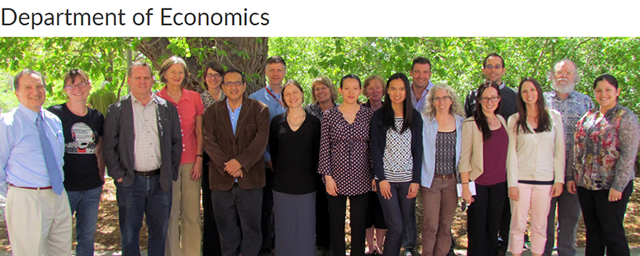
Economics ETDs
Publication Date
2-8-2011
Abstract
Watershed management has always been a crucial issue, especially in developing regions where watershed residents are comprised of low-income farmers. The Feitsui Watershed in Taiwan is one such agricultural watershed. Traditionally, the watershed management policy targets only pollution abatement, therefore constraining agricultural and other economic development. These regulatory measures are likely to hamper the local economy and worsen the living situation for farmers. In this paper, I argue that good watershed management should also consider the positive externalities from agriculture. I find that the willingness to pay for farmland amenity is above the profit of agricultural output. Ignoring this amenity value could result in an inappropriate watershed resource allocation. For the best land allocation of the Feitsui Watershed, I argue that the public good nature of land should not be overlooked; all the externalities along with the land development should be identified and carefully considered. This study applies McConnells (1989) model, comparing the net marginal return between agriculture and watershed conservation, taking into account both negative and positive agricultural externalities. The empirical results suggest that ignoring positive externality values from agriculture will negatively impact the social welfare of the society. The current zoning policy is not an efficient land allocation. The allotment of agriculture land in the Feitsui Watershed should be increased to seven percent of the total area.
Degree Name
Economics
Level of Degree
Masters
Department Name
Department of Economics
First Committee Member (Chair)
Grimsrud, Kristine
Language
English
Keywords
framland allocation, externality, watershed, amenity value
Document Type
Thesis
Recommended Citation
Chang, Chi-Hsin. "Optimal Land Use for Watershed Management—a Case Study in the Feitsui Watershed." (2011). https://digitalrepository.unm.edu/econ_etds/27
